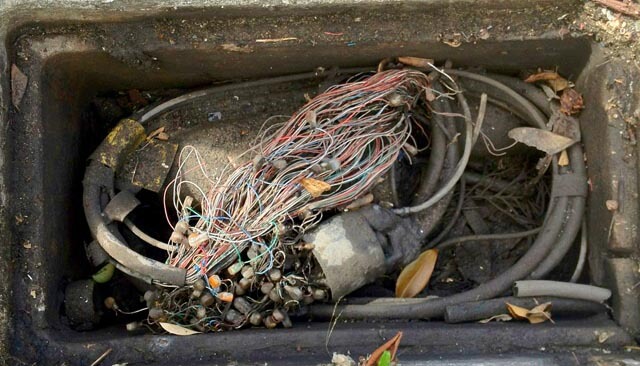
What is a good internet speed?
We live in a world where a fast, reliable internet connection has become a basic necessity. Whether you’re streaming movies, gaming, working from home, or just browsing the web, the speed of your internet connection can make or break your online experience. But what exactly is a “good” internet speed?
In this guide, I’ll break down everything you need to know about internet speeds, from understanding the jargon to determining the right speed for your home. Whether you’re a tech novice or a seasoned internet user, this guide is designed to explain things clearly and help you make informed decisions.
What Does “Internet Speed” Actually Mean?
Internet speed refers to how quickly data is transferred between your device and the internet. It’s measured in megabits per second (Mbps), and you’ll often see two types of speeds advertised: download speed and upload speed.
- Download Speed: This is how quickly data comes from the internet to your device. It affects things like loading websites, streaming Netflix, or downloading files. The faster the download speed, the less buffering and lag you’ll experience.
- Upload Speed: This measures how fast data travels from your device to the internet. It’s essential for activities like video calls, online gaming, and uploading large files to the cloud. While most people focus on download speed, good upload speed is crucial if you work from home or stream content.
What About Latency?
Speed isn’t the only factor that matters. Latency, often called “ping,” is the time it takes for data to travel from your device to a server and back. High latency can cause delays, which is particularly noticeable in online gaming or video calls. For most activities, latency under 100 milliseconds (ms) is acceptable, but for gaming or video conferencing, you want this number as low as possible—ideally under 30 ms.

Factors that Influence Your Internet Speed Requirements
1. Activity-Based Needs
Different online activities demand different speeds. Here’s a breakdown:
- Basic Web Browsing & Email: For checking emails or scrolling through social media, a speed of 1-5 Mbps is enough.
- Streaming (HD/4K): Streaming services like Netflix recommend 5 Mbps for HD video and 25 Mbps for 4K streaming.
- Online Gaming: Fast-paced online games require 10-50 Mbps download speeds and low latency to avoid lag. Upload speeds matter too, particularly for multiplayer games.
- Remote Work & Video Conferencing: Platforms like Zoom or Microsoft Teams suggest 25-100 Mbps, depending on how many video streams are being used at once.
- Large File Downloads/Uploads: If you often upload large files or download games, you’ll want 100 Mbps or more to avoid waiting around.
2. Number of Devices
In a modern household, multiple devices (smartphones, tablets, laptops, smart TVs) are connected at once. More devices = more bandwidth required. Here’s a rough guide:
- 1-2 devices: 10-25 Mbps
- 3-5 devices: 50-100 Mbps
- 5+ devices: 100+ Mbps
3. Household Size
The more people in your home using the internet simultaneously, the more speed you’ll need. If you’re living alone or with a partner, 25-50 Mbps might be enough. But for families with kids streaming, gaming, and video calling, it’s best to aim for 100 Mbps or higher.
How Much Internet Speed Do You Really Need?
Many internet providers love to advertise their top-tier speeds, but do you really need 500 Mbps or even 1 Gbps? Let’s break it down by activity:
- Light Internet Use (emails, browsing): 5-10 Mbps is plenty.
- Streaming in HD: 10-25 Mbps for uninterrupted HD streaming, more for 4K.
- Frequent Video Calls: For regular Zoom or Skype calls, 25-50 Mbps is ideal.
- Serious Online Gaming: 50-100 Mbps ensures smooth gaming without lag.
- Heavy File Uploaders/Downloaders: 100-500 Mbps for uploading large files to the cloud or downloading massive games.
Remember, these are per-user recommendations. If you’ve got several people all streaming, gaming, or video calling at once, you’ll need to multiply these figures to ensure everyone gets a smooth connection.
Types of Internet Connections: Which is Best?
Your internet speed doesn’t just depend on the Mbps you’re paying for; the type of connection you have plays a significant role in how fast and reliable your service is. Here’s a look at the main types of internet connections:
- Fibre: The fastest and most reliable connection available, fibre-optic cables can deliver speeds of 1000 Mbps (1 Gbps) or more. Perfect for households with high internet demands.
- Cable: A widely available and reliable option, cable internet can reach speeds of up to 500 Mbps. Great for streaming and gaming.
- DSL: Delivered over traditional phone lines, DSL is slower, typically maxing out around 100 Mbps. It’s a decent choice for browsing and light streaming.
- Satellite: Often the only option in rural areas, satellite internet is much slower (typically 25-100 Mbps) and suffers from high latency, which can make gaming and video calls difficult.
How to Check Your Current Internet Speed
Not sure if you’re getting the speed you’re paying for? It’s easy to test your current internet speed with free tools like Speedtest.net or Google Speed Test. Here’s how:
- Close any apps or devices that are using the internet.
- Run the speed test on a device connected to your Wi-Fi.
- Compare your results to the speeds recommended above. If your speed is lower than expected, it might be time to call your provider or upgrade your plan.
Optimising Your Internet Speed: Top Tips
Even with a high-speed connection, sometimes your internet may feel sluggish. Here are some tips to help optimise your connection:
1. Check Your Router
- Place your router in a central location to ensure the best coverage throughout your home.
- Consider upgrading your router if it’s more than a few years old, as newer models are better at handling multiple devices and providing faster speeds.
2. Reduce Bandwidth Usage
- Limit the number of devices streaming or downloading at the same time.
- Turn off automatic updates on devices to prevent them from using bandwidth in the background.
3. Use Wired Connections
- If possible, connect important devices (like your computer or gaming console) directly to the router with an Ethernet cable. Wired connections are typically faster and more stable than Wi-Fi.
4. Secure Your Wi-Fi
- Make sure your network is password-protected to prevent others from using your bandwidth without your knowledge.
Frequently Asked Questions (FAQs)
Q: What is considered fast internet?
A: Generally, any speed over 100 Mbps is considered fast and can handle streaming, gaming, and multiple users.
Q: How much speed do I need for streaming in 4K?
A: You’ll need at least 25 Mbps for 4K streaming without buffering.
Q: Is upload speed important?
A: Yes, especially if you’re working from home, uploading large files, or gaming online. While many plans focus on download speeds, upload speeds of 10-25 Mbps are ideal for smooth performance.
Q: Do I need fibre internet?
A: If you have a large household or do a lot of high-demand activities like gaming or video conferencing, fibre’s speed and reliability are worth the upgrade.
Conclusion
Ultimately, the right internet speed for you depends on your online activities and how many people are sharing the connection. By understanding the basics of internet speed, knowing your needs, and optimising your connection, you can ensure smooth browsing, streaming, and gaming experiences for everyone in your household.
Make sure to regularly test your internet speed and consider upgrading if your current plan isn’t keeping up with your demands. With the right speed, you’ll enjoy fast, frustration-free internet every time you log on.

Jason Kearney
Head Internet Technician
Jason Kearney is the Head Technician at SECURE A COM, with qualifications spanning NBN, ADSL, phone, and data cabling. Starting as an electrician, Jason quickly delved into the telecommunications sector, leading crucial projects like the rehabilitation of the Telstra network. With credentials in both managerial and technical aspects, he now specialises in phone line and NBN fault location and repair, serving both homes and businesses with effective and personalised telecommunications solutions
More From Internet Solutions

TELSTRA COMPLAINTS | FAULTS IN THE TELSTRA NETWORK



